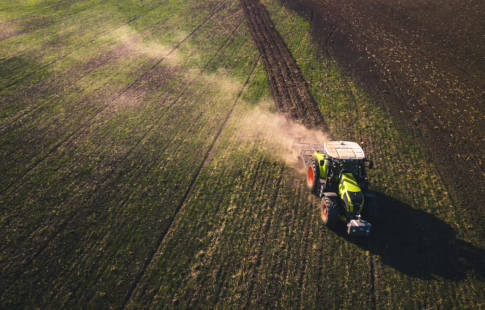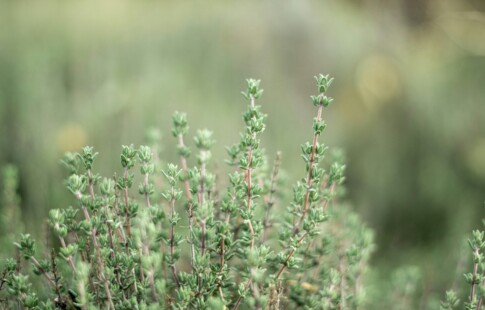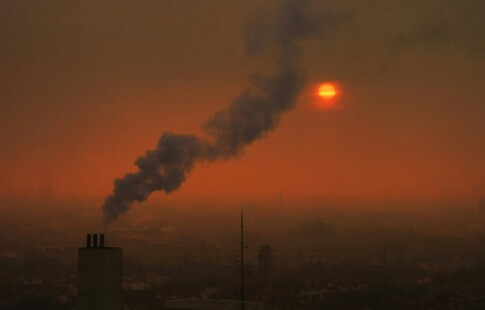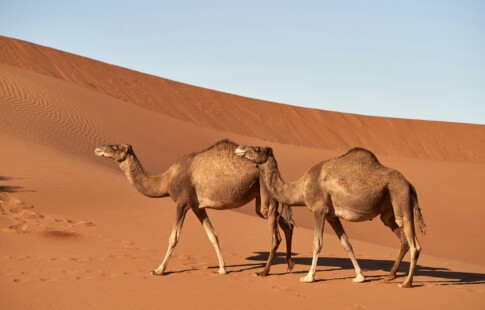
How Much is Your Diet Contributing to Climate Change?
We are reader-supported. When you buy through links on our site, we may earn affiliate commission.
Since 1880, the average temperature of the globe has increased by 1.8° Fahrenheit. The amount of Arctic ice has dropped by 13.2 percent each decade. The sea level has increased by 3.2 millimeters every year. These startling statistics from NASA indicate that climate change is not only real, but that it’s happening at a rapid pace. Of course, one question lingers on everyone’s mind: How we stop climate change? One simple way is to eat less meat. Is your diet contributing to climate change?
A global shift to eating less meat could save the planet from an 80 percent increase in greenhouse gas emissions — and that’s just with less meat. Consider what would happen if the entire planet went vegan or vegetarian! While it might not be practical to demand that every person on earth suddenly stop eating steak, deciding to cut back on meat would definitely be a positive step for your planet and your health. Keep reading to learn how your diet affects Mother Earth and, by extension, the people who inhabit her.
Pollution
The most detrimental aspect of being a dedicated carnivore is that the production of meat causes an extreme amount of greenhouse gas emissions compared to the cultivation of plant foods. Greenhouse gases are such a problem because they trap heat in the earth’s atmosphere and raise the global temperature, when wreaks all types of havoc across the planet (e.g., those rising oceans and melting ice caps).
When you compare beef and lamb to beans and other legumes, gram for gram of protein, the meat results in 250 times more greenhouse gas emissions than the plants. Compare pork and poultry to legumes, and the statistic is still shocking: their production results in 40 times more greenhouse gas emissions. A large portion of these gases results from the energy it requires to process and transport meats. However, some of the gases come from the animals themselves. The three major offenders are carbon dioxide, methane and nitrous oxide.
Greenhouse Gases
Carbon dioxide fills the air whenever processing plants or delivery trucks burn fossil fuels for power — about 11 times as much per calorie of animal protein compared to a calorie of plant protein. Methane, on the other hand, emanates from the animals as they digest their food and from the copious amounts of manure they produce. The dairy industry largely produces nitrous oxide, a gas 300 times more destructive to the environment than carbon dioxide.
Although vegan and vegetarian diets have been projected to have the greatest positive impact on the state of the earth going forward, it wouldn’t necessarily take a total moratorium on meat to keep the earth healthier. A more subtle shift to a largely Mediterranean and pescatarian diet would make major waves in the progression of climate change, especially if you’re being mindful to only eat fish farmed sustainably, and it would be much more feasible for the majority of the earth’s population.
Deforestation
The problem of greenhouse gases emitted by meat production is compounded by the fact that some of the earth’s safeguards against global warming must be removed in order to raise livestock. Perhaps most importantly, people cut trees down in order to make room for pastureland where cattle and other animals can graze. In fact, roughly 80 percent of the deforestation that occurs in the Amazon Rainforest can be directly contributed to the raising of cattle.
When forests thrive, they serve as types of sponges that can soak up carbon dioxide and return it to the atmosphere as clean, breathable oxygen. However, when humans decimate forests in order to make way for grazing cows, Mother Nature loses a bit of her ability to protect herself. So, essentially, every hamburger comes with a small but significant tax on the earth. So if you wonder if you’re eating a diet contributing to climate change, simply ask yourself: does it contain meat?
Undernourishment
Beyond the direct issues of climate change, meat negatively impacts the earth in other ways. When the globe continues to consume meat, portions of its population suffer. Approximately 35 percent of the world’s grains are used to fatten up livestock. Meanwhile, nearly 800 million people go underfed. If everyone is ever to move toward a happier and healthier earth, the reallocation of this food to people in need is an obvious step.
Disease
Even worse, those people who are eating meat on a regular basis are at a much higher risk for diet-related diseases. So as they contribute to climate change in drastic ways, they also may unknowingly push the globe in an unhealthy direction. Research shows a correlation between high red meat intake and diabetes, heart disease, and even cancer.
If the entire planet switched to a vegetarian diet, approximately 7.3 million lives would be saved by the year 2050, according to a study by Oxford University. The shift could also save the globe from 63 percent of greenhouse gas emissions from farming. It everyone could commit to strict veganism, the statistics are even more promising: 8.1 million lives saved and pollution cut by 70 percent. Consider what the earth would look like for your grandchildren if this was the scenario that unfolded, as opposed to the alternative?
With these facts in mind, it’s hard to ignore the obvious: eating meat regularly is bad for people and it’s bad for the environment. If everyone on earth even promised to eat just one meatless meal per week — or an entire day’s worth of meatless meals — consider how much this tiny change in routine could impact the course of global warming and climate change! It’s time to ask yourself how much is your diet contributing to climate change. If a shift to veganism isn’t in the cards, cut meat from one day each week and enjoy the results.
Share on
Like what you read? Join other Environment.co readers!
Get the latest updates on our planet by subscribing to the Environment.co newsletter!
About the author

Jane Marsh
Starting from an early age, Jane Marsh loved all animals and became a budding environmentalist. Now, Jane works as the Editor-in-Chief of Environment.co where she covers topics related to climate policy, renewable energy, the food industry, and more.





